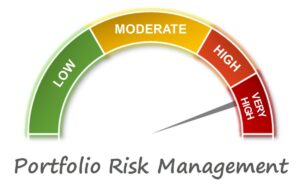Investing in the stock market is one of the best ways to get rich in the long run, and it’s also one of the most popular ways. While the market can deliver great returns, it’s also risky and unpredictable. Investors need smart plans and practical advice to navigate this complex world. Whether you’re experienced or just starting out, it’s crucial to understand the basics and stay disciplined. Smart, patient people who plan ahead perform better in the stock market than those who act impulsively or based on gut instinct.
Start with a Clear Investment Plan
When investing, it’s important to have a clear and well-thought-out plan. Your financial goals, time frame, risk tolerance, and budget should all be included in this plan. Without a plan, it’s easy to make bad choices that can undermine your long-term investment progress. A clear plan can help you stay focused during market fluctuations and prevent you from making decisions based on your gut feeling. It also helps you understand the combination of different stocks or assets in your portfolio.
Focus on Long-term Growth
It’s easy to make money quickly in the stock market, but you usually end up losing money. Smart investors focus on long-term growth rather than short-term gains. Historically, the stock market has performed well over the long term, even with short-term volatility. When you invest with a long-term view, your money grows slowly, which is called compounding. It also takes away the pressure of having to react to every change in the market. Those who are patient and stick to their plan make more money in the long run.
Diversification to Reduce Risk
When it comes to buying, one of the most important rules is diversification. This means investing your money in many different companies, sectors, and assets. Diversification reduces the chance that you will lose all your money because one stock or sector performs poorly. Even if investors have done this before, diversification is an important part of their plan. Holding stocks from different sectors of the economy reduces the chance of large losses and increases the chance of stable profits. Diversification does not guarantee profits, but it does help reduce risk.
Do your Research Before Buying Stocks
Before buying stocks, it is crucial to do thorough research. Understand the company’s business model, financial situation, growth opportunities, and market position. Check the company’s latest news, balance sheets, and earnings reports. If you buy stocks in a company without thinking or just because of a rumor, you could lose money. In the stock market, information is power, and that’s true. The more you know about an investment, the better you can make an informed decision. Do your research beforehand, and you’ll be less likely to be surprised by an unexpected event.
Don’t Try to Time the Market
Even for professional investors, it is difficult to predict when the market will peak and fall. This method, known as “timing,” often causes traders to miss opportunities and act on their gut feeling. A smarter strategy is to invest regularly, regardless of market trends. This is called dollar-cost averaging. With this method, you buy more shares when prices are low and fewer shares when prices are high. This helps keep your cost per share low. If you invest regularly, you can make a profit in the market over the long term without having to worry about daily fluctuations.
Control your Emotions
Controlling your emotions is one of the most difficult aspects of investing in the stock market. People can make bad decisions out of fear and greed, such as selling too quickly when the market is down or buying too much when the market is up. People who are good at investing stay calm and stick to their plans, even when the market is down. Remember that market fluctuations are normal and only last a short time. If you don’t let emotions influence your decisions, you can avoid investment losses and stay on track to achieve your financial goals.
Understand the Value of Dividend Stocks
It’s a good idea to add dividend stocks to your financial portfolio. These stocks pay dividends regularly, which is an added benefit on top of the price appreciation. Companies that pay dividends regularly are generally financially stable and have a long history of doing so. While dividend stocks may not grow as quickly as some tech startups, they can still provide steady returns and reduce the overall risk of your portfolio. If you don’t need the money right away, reinvesting your profits can also help you benefit over the long term through compounding.
Review your Investments Regularly
You need to be patient to invest for the long term, but that doesn’t mean you should abandon your investments. Reviewing your portfolio regularly is a good way to ensure that your investments are still in line with your goals and risk appetite. This doesn’t mean you have to check your account every day, as this can be stressful. Instead, you should check it every three to six months. During this review period, you can adjust your portfolio, sell underperforming assets, or pursue new opportunities. Understanding the dynamics of your investments helps you make smart decisions quickly.
Use Stop-loss Orders Wisely
Stop-loss orders automatically sell a stock when it reaches a certain price. This helps you limit your losses. Stop-loss orders are especially useful when the market is volatile or when the price of your stock is likely to fall. Sometimes a stop-loss order fails and is not an effective protection against all types of losses, but it can be a disciplined way to keep your money safe. If you use stop-loss orders wisely, set reasonable limits and do not rely on them without sufficient research or planning.
Conclusion
Being a smart stock investor is not just about choosing the right stocks. It means having a clear plan, being patient, controlling your emotions, diversifying your investments, and staying informed. By setting long-term goals, doing the right research, and sticking to your plan, you can have confidence in the market and increase your chances of success. In the stock market, perseverance, understanding the market, and making calm decisions will pay off. As you gain knowledge and improve your strategy, you will become a better investor and build lasting wealth. Investing is like a journey, and the wiser you are, the smoother the journey will be.
FAQs
1. Is investing in the stock market safe?
Investing always involves risk, but if you are smart enough, diversify your portfolio, and take a long-term view of the stock market, it can be a safe and effective way to get rich.
2. I want to buy stocks. How much money do I need?
According to the website, you can start investing with as little as $10 to $100. Many brokers offer fractional share subscriptions, which allow you to buy expensive stocks with a small amount of money.
3. When is the best time to invest in the stock market?
The best time to spend money is when you have enough money. People always try to time the market but often miss the opportunity. It is usually more effective to keep spending than to time the market.
4. How can I buy stocks with less risk?
The best ways to reduce risk are diversification, research, investing regularly, and taking a long-term view.
5. What are dividends? Why are they important?
Dividends are payments from a company to its shareholders, usually from profits. Stocks that pay dividends can help you balance your portfolio and keep receiving money.




